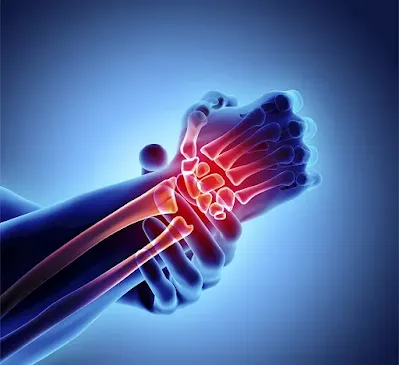The Powerful Synergy of Vitamin K2 and D3:
Benefits, Sources, and Importance
Introduction
Vitamins D3 and K2 have become a focal
point in the health and wellness community in the last few years. Although the
individual functions of these two vitamins are vital, together they are even
more beneficial to bone health, cardiovascular health, and immune health. This
is an in-depth guide to the science of vitamin K2 and D3, how they interact
synergistically with each other, dietary sources, and supplementation, and the
theoretical health benefits.
Understanding
Vitamin D3
What is Vitamin
D3?
Cholecalciferol (vitamin D3) is a
fat-soluble vitamin formed in the body as a result of the exposure of the skin
to sunlight. Some foods and supplements can provide it also. In contrast to
vitamin D2 (ergocalciferol) which is of plant origin, D3 is more efficient in
the elevation and sustenance of optimum vitamin D concentration in the blood.
Functions of
Vitamin D3
1. Bone Health –
Vitamin D3 improves the absorption of calcium in the gastrointestinal tract,
which is key to having strong bones and avoiding the development of
osteoporosis.
2. Immune Support – It regulates the immune reaction
lowering the chances of infections and autoimmune disorders.
3. Mood Regulation – Depression and seasonal affective
disorder (SAD) are associated with low levels of vitamin D3.
4. Cardiovascular Health – It maintains the heart activity
by maintaining blood pressure and minimizing inflammation.
Sources of
Vitamin D3
·
Sunlight – The closest to nature; 10-30 minutes
in the middle of the day, a few times a week is enough.
·
Food Sources – Fish (salmon, mackerel) and egg yolks
(salmon, mackerel), liver and fortified foods (milk, cereals).
·
Supplements – It comes as soft gels, capsules, and
liquid.
Vitamin D
Deficiency
It is often deficient particularly in
low sunlight areas. Symptoms include:
·
Weakness and
tiredness
·
Bone pains and
cramps in the muscular system
·
Frequent
infections
·
Mood disorders
Understanding
Vitamin K2
What is Vitamin
K2?
Vitamin K2 (menaquinone) is a less known, yet essentially important nutrient, which acts in collaboration
with vitamin D3. K2 unlike K1 (phylloquinone), is involved in the distribution
of calcium to the bone and teeth and the prevention of calcium deposition in
the arteries and soft tissues.
Functions of
Vitamin K2
1. Bone Health –
Stimulates osteocalcin, a protein which attaches calcium to the bone matrix,
increasing bone density.
2. Heart Health –
Heart-healthy: Suppresses calcification of the arteries by activating matrix
Gla protein (MGP) which prevents calcium deposition in arteries.
3. Dental Health – Promotes good teeth as it assists in
the formation of dentin.
4. Anti-Aging Effects – Can improve the elasticity of the skin
thus reducing the wrinkles.
Sources of
Vitamin K2
·
Fermented
Foods – Soy is the richest source
(Korean fermented soybeans and Japanese fermented soybeans).
·
Animal
Products – Grass fed dairy, egg yolks,
liver and some cheeses (Gouda, Brie).
·
Supplements – Potentially with D3, to allow
absorption.
Vitamin K2
Deficiency
Deficiency is widespread since K2 is
not so plentiful in present-day diets, and can result in:
·
Higher chances of
osteoporosis
·
Stiffness of
arteries and heart disease
·
Unhealthy oral
health
The Synergistic
Relationship Between Vitamin K2 and D3
Why Do They Work
Better Together?
There is a complementary relationship
between vitamin D3 and K2:
·
Vitamin D3 enhances absorption of calcium, however in
absence of K2 excess calcium could be deposited in blood vessels rather than
bones.
·
Vitamin K2 switches on proteins (osteocalcin and MGP) to
make sure that calcium is used in the right way- making the bones stronger and
the heart safe.
Read Also: - How to take vitamin K2 and D3 together
Key Benefits of
Combining K2 and D3
1. Enhanced Bone Density
·
Research
indicates that D3 with K2 is more effective in improving the bone mineral
density than taking D3 alone and this lowers the risk of fractures in the
elderly.
2. Cardiovascular Protection
·
K2 blocks the
formation of arterial calcium and D3 helps in endothelial health which lowers
the chances of cardiovascular diseases.
3. Improved Dental Health
·
The two vitamins
also lead to stronger teeth as they encourage optimum calcium metabolism.
4. Optimal Immune Function
·
Vitamin D3
enhances the immune responses and K2 decreases inflammation, which gives the
advantage of a balanced immune defense.
Scientific
Evidence Supporting Vitamin K2 and D3
Bone Health
Studies
·
The 2020 study
published in Osteoporosis International showed that postmenopausal women on D3
and K2 had much higher bone density compared to D3 alone.
·
A study conducted
in the PLoS One (2019) demonstrated that K 2 supplementation prevented
age-related bone loss.
Heart Health
Research
·
A study carried
out at Rotterdam (2004) found that high level intake of K2 reduced the risk of
arterial calcification and cardiovascular mortality by 50 percent.
·
Another
meta-analysis in Nutrients (2015) established that K2 supplementation leads to
a better vascular health.
Diabetes and
Metabolic Benefits
·
There is evidence
that K2 enhances insulin sensitivity whereas a deficiency of D3 is associated
with type 2 diabetes.
How to Supplement
with Vitamin K2 and D3
Recommended
Dosages
·
Vitamin D3: 1000-5000 IU per day (depending on the level
of blood).
·
Vitamin K2
(MK-7): 100 200 mcg per day.
Choosing the
Right Supplement
·
Seek mixtures of D3
+ K2 (MK-7) that are more bioavailable.
·
Choose oil-based soft
gels because the two vitamins are fat-soluble.
·
When you are
using supplements, do not use synthetic K1 supplements, which are not as
effective as K2.
Potential Side
Effects and Interactions
·
Blood
Thinners (Warfarin): Heavy
consumption of K2 can cause problems with anticoagulant drugs.
·
Over-Supplementation
of Calcium: Calcium without
K2 may cause stiffness of arteries.
Food vs.
Supplements: Which is Better?
Although dietary sources are to be
preferred, not everyone eats a sufficient amount of foods rich in K2. Supplements
will assist to fill the gap particularly in:
·
Vegans (as K2 is
predominantly in animal foodstuff)
·
Elderly who have
low nutrient absorption
·
People who are
deprived of much sunshine
Conclusion
A combination of Vitamins K2 and D3 is
a dynamic duo that helps in the strength of bones, the health of the heart, and
immune support. Whereas D3 helps the calcium to be absorbed, K2 guides the
calcium to the correct places- avoiding deficiency and chronic diseases. Both
vitamins are important to health, ensuring that they are at optimum levels,
whether through sunshine, foods, or supplements is essential to long term
health.
In case you are thinking of
supplementation, please visit a health professional to help you with the dosage
according to your requirements. With the synergetic power of K2 and D3, you can
make your first step on the way toward a healthier life.
FAQs
1. Is it ok to
use vitamin D3 without K2?
Yes, however, when they are taken
together, it means that calcium is used properly and there are fewer risks of
arterial calcification.
2. When should K2
and D3 be taken?
Better absorbed with a meal that
contains fat, preferably in the morning.
3. Does nature
have any natural vegan sources of K2?
The healthiest source, especially in
vegan diets, is natto, but the majority of plant-based diets lack K2 so
supplementation is required.
4. Is excessive
vitamin D bad?
Surplus of D3 may result into
hypercalcemia which is countered by K2 by controlling the distribution of
calcium.
5. When does K2
and D3 work?
Benefits to the bones and
cardiovascular system can go up to 3-6 months, whereas immune benefits can be
observed earlier.
Maximizing your health can happen
naturally and effectively by learning how to use the strength of vitamins K2
and D3.









Post a Comment
0Comments